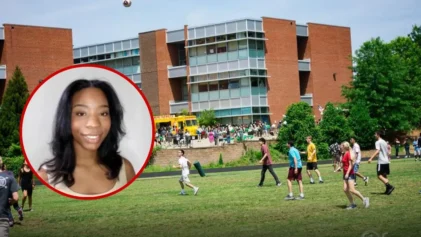
If students outperform their peers on the tests by spending much of the year on grueling preparation sessions, is that a bastardization of the true meaning of education, or is it an acceptable response to the high-stakes testing that now faces most students in American schools?
These questions were probed in a New York Times profile of the Success Academy Charter Schools, the largest network of charters in the city. Publicly funded but privately operated, the network is run by former New York City councilwoman Eva Moskowitz. By next year Moskowitz will have 43 schools—a number that could increase to 100 if Gov. Andrew Cuomo has his way.
As the Times pointed out, that could make the Success network larger than the Buffalo school district, the second-largest in New York state.
The Times profile painted a picture of a network of schools where students are publicly ridiculed if their practice test scores are unacceptably low, toys and prizes are used as incentive to motivate students, teachers are closely monitored and held accountable if their students don’t perform well, and teachers still in their 20s are promoted to school principal positions if their students do well on the tests.
The students’ scores are off the charts compared to other low-income schools and parents are so eager to get in that this year the network said it received more than 22,000 applications for 2,688 seats.
While many parents are giddy at the results, it’s the kind of learning environment and incentive structure that can drive educators crazy, making Success the center of constant controversy over its methods.
As noted by the Times, the critics of the academies say the high test scores are a “mirage” created, in part, by the inordinate test preparation.
Halley Potter, a fellow at the Century Foundation, a progressive policy organization, and the co-author of two books about charter schools, said of the impressive test scores: “Success Academy’s strong test scores tell us that they have a strong model for producing good test scores,” she told the Times, adding that there could be lessons in Success’s practices for schools that are trying to improve their scores.
But while many of the current teachers were afraid to talk, the Times had no problem tracking down former teachers who lashed the school for creating an environment that was almost abusive.
Jasmine Araujo, 25, a former Teach for America teacher, quit after just half a year as a special-education teacher at Success Academy Harlem 3.
“I would cry almost every night thinking about the way I was treating these kids, and thinking that that’s not the kind of teacher I wanted to be,” said Araujo, who now teaches at a charter school in New Orleans.
Critics point to the school’s exceedingly high turnover rate as evidence that the network’s teaching environment was harmful.
Three of the Success schools actually had a turnover rate in the 2013-14 schoolyear of more than 50 percent, according to the latest school report cards, but Success officials said that these figures were inflated by the number of teachers who move from one Success school to another, or to nonteaching positions within the network.
According to the network’s numbers, attrition last year was 17 percent, compared to 6.1 percent for the entire system.
The Times said most of the former teachers interviewed left not because of the workload, but because they disagreed with Success’s punitive approach to education.
For example, one teacher complained when she was expected to announce all of her students’ scores on practice tests by asking those who had scored a four to stand up, followed by those with a three and then those with a two. Though the teacher and her colleagues persuaded their supervisors not to make students with a score of one stand up, it was obvious when they were left conspicuously sitting down.
She said she was even told by a supervisor that when a student made a mistake, she should have torn up the paper in front of the student. She said students were not supposed to go to the restroom during practice tests and she heard a leader from another school praise the dedication of a child who had wet his pants rather than take a break.
“I dreaded going into work,” the teacher, who now teaches in a public school, told the Times.
But in response to the critics, Moskowitz said she’s just trying to bring middle-class standards into the school environment. She said their methods are putting their students on the same college track as children in wealthier neighborhoods who had better schools and money for extra help. She said the higher test scores will help Success students get into better middle schools and high schools.
“For affluent parents who are concerned about the test scores, they have an exit strategy — their exit strategy is to hire a private tutor,” Moskowitz said.
No one criticizes those parents, but “when we support our students, we get criticized,” she said.
“And I would argue that it’s not fair that only the kids who can hire private tutors should do well.”


